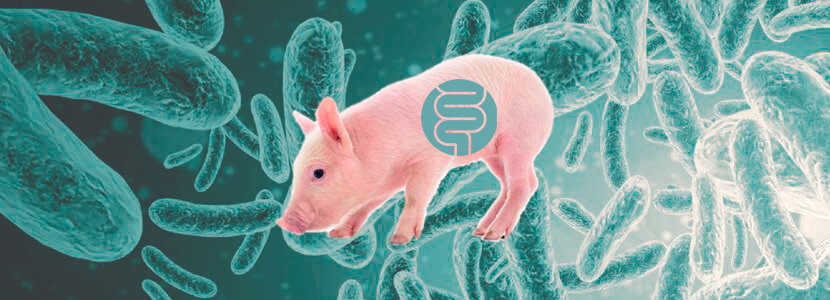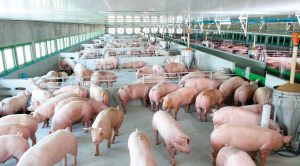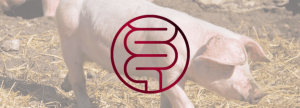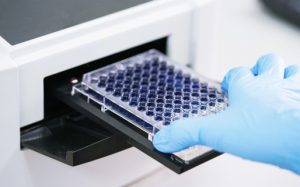 12 Dec 2022
12 Dec 2022
Fecal metabolites can serve as biomarkers to monitor sanitary levels in pigs under productive regimes.
The rearing and management conditions to which pigs are subjected to, including their health status; affect their productivity, health, and welfare. Pigs raised under low sanitary conditions experience: immune system activation, reduced growth performance and a change in nutrient and energy requirements. Modifying their physiological state compared to those pigs which are raised under high sanitary conditions.
Previous studies evidence how the sanitary conditions of pigs can alter microbiome composition in the colon. This resulted in metabolome modifications within the colon and the blood metabolome of 13 weeks old pigs. Based on the results from a previous study by te Pas and collaborators, it was concluded that suboptimal health levels in pigs were associated with changes in microbiome composition and their metabolome. The metabolic data obtained through this study served to investigate the association between health status, metabolic state, and parameters related to growth performance.

It is suggested that this type of metabolite data can contribute to establish biomarkers for (gut) health and performance.Therefore, fecal biomarkers can help to monitor the effects of sanitary levels in pigs and their associated health status within farms. Serving as a tool that helps to determine the best time to intervene in order to to prevent negative impacts on productive performance.
Study
The present study was carried out by researchers from Wageningen University where they aimed to evaluate fecal metabolite profiles in pigs reared under different sanitary conditions and subjected to different vaccination regimes. The pigs within the study aged from 14 to 22 weeks.

Metabolites (Results)
Pigs kept to under low and high sanitary conditions respectively, presented different fecal metabolites associated with:
The metabolites which exhibited significant differences were those derived from metabolic processes associated with immune system metabolism or maintaining nutrient digestive capacity. This included:

Concluding Remarks:
Researchers within this study concluded that:
The results show that the fecal metabolite profiles reflect the sanitary conditions under which the pigs are kept.
Overall, fecal metabolite profiles provide a better understanding of the subclinical health status and physiology of pigs kept under different sanitary conditions, says Schokker.
The fecal metabolite profiles closely resembled the profiles of metabolites found in the colon of pigs. Fecal valerate and kynurenic acid for example can potentially be used as ‘non-invasive’ biomarkers for immune or inflammatory status.
The use of biomarkers could provide the basis for either monitoring subclinical health status in pigs or formulating targeted nutritional interventions aimed at (re)balancing the immune system in pigs.

The discovery of ‘non-invasive’ biomarkers will not only help researchers measure the health status of animals, but also reduce the stress on animals, especially when biological samples, such as blood, are collected, which requires invasive procedures states Soumya Kar of Wageningen Livestock Research, the study’s lead author.
According to Kar such discoveries and innovations corresponds ‘refinement’, one of the three Rs – Replacement, Reduction and Refinement – in animal experiments.
“This underlines the intention of Wageningen University & Research to implement the 3Rs principles in its research and to support societal demands for 3Rs principles.”
Source: This abstract was taken and modified from its original source “Potential of fecal metabolites as biomarkers for pig health.”
Read full research paper: Kar SK, te Pas MFW, Kruijt L, Vervoort JJM, Jansman AJM, Schokker D. Sanitary Conditions on the Farm Alters Fecal Metabolite Profile in Growing Pigs. Metabolites. 2022; 12(6):538. https://doi.org/10.3390/metabo12060538
Subscribe now to the technical magazine of animal nutrition
AUTHORS

Nutritional Interventions to Improve Fertility in Male Broiler Breeders
Edgar O. Oviedo Rondón
The Use of Organic Acids in Poultry: A Natural Path to Health and Productivity
M. Naeem
Synergistic Benefits of Prebiotics and Probiotics in Poultry, Swine, and Cattle
Gustavo Adolfo Quintana-Ospina
Hybrid Rye Potential in Laying Hen Feed Rations
Gwendolyn Jones
A day in the life of phosphorus in pigs: Part I
Rafael Duran Giménez-Rico
Use of enzymes in diets for ruminants
Braulio de la Calle Campos
Minerals and Hoof Health in the Pregnant Sow
Juan Gabriel Espino
Impact of Oxidized Fats on Swine Reproduction and Offspring
Maria Alejandra Perez Alvarado